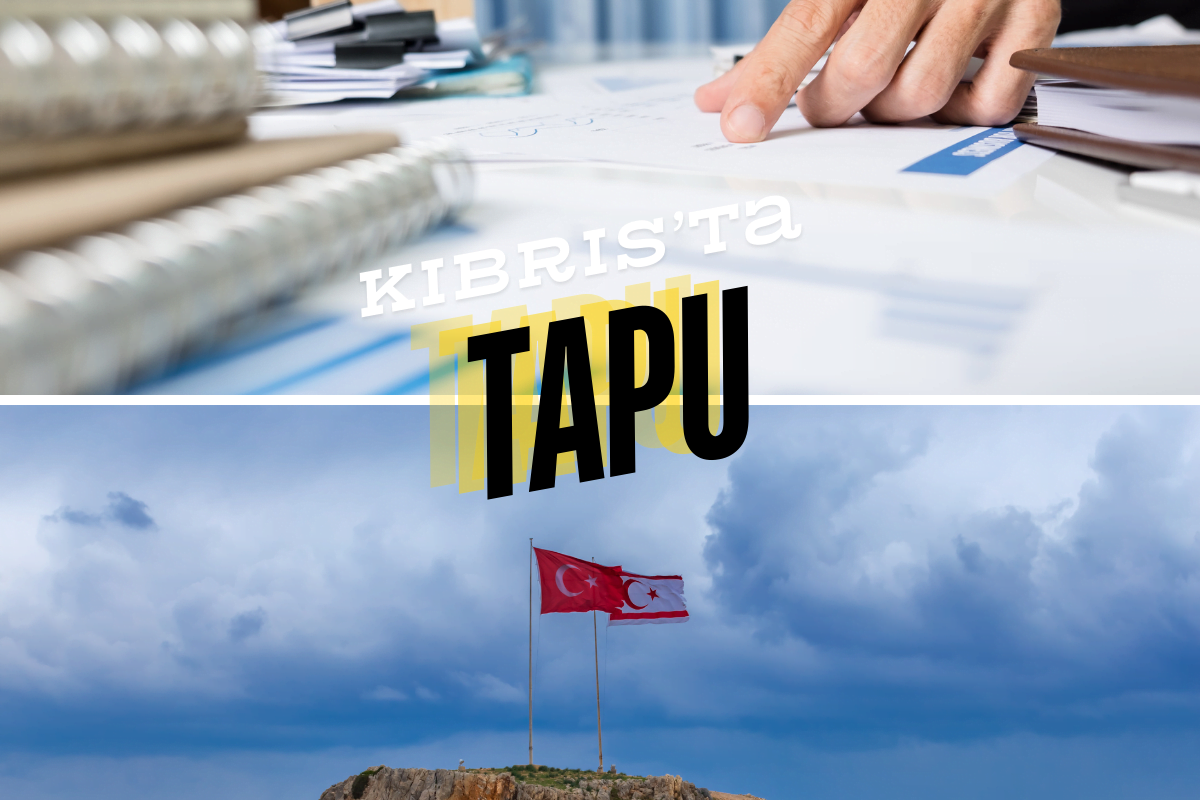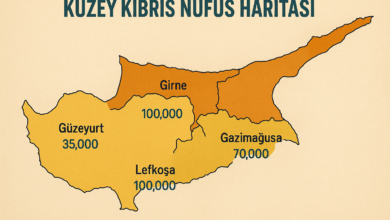
Property ownership in Cyprus is closely linked to the historical and legal structure of the island. In the northern part of Cyprus, property regulations have changed over time and various types of title deeds have emerged. In this article, you will find information on the history of title deeds in Northern Cyprus, what to consider when buying a title deed in the TRNC, the process of obtaining title deeds for foreigners, and what you need to know about taxation and costs. Understanding Cyprus' complex title deed structure is essential for both investors and property owners. Each of the title deed types in Cyprus offers different advantages in terms of legal security and property rights. Find out the details and Your property investments in Cyprus explore this article to secure your business.
Table of Contents
History of Title Deeds in Northern Cyprus
The history of title deed types in Northern Cyprus is closely linked to the historical and political developments of the island. The Cyprus Peace Operation in 1974 led to major changes in the property structure and the emergence of new types of title deeds. In particular, deeds such as Turkish Stubs and Equivalent Stubs gained importance as a result of the property regulations during this period. While the Turkish Stub is known as the most secure type of title deed issued for properties belonging to Turks living in Cyprus before 1974, the Equivalent Stub covers immovable properties issued in return for properties left in the south. The history of these title deeds is very important in protecting and securing property rights in Northern Cyprus.
Northern Cyprus Title Deed Types
The importance of title deed types in North Cyprus stems from the fact that they constitute a great security for investors and property owners. Each type of title deed has a specific legal status and protection, which secures the rights of property owners. The Turkish Stub provides legal security of ownership, while the Equivalent and Allocation Stubs represent property rights that were reorganized after 1974. The legal security provided by these title deeds has made Northern Cyprus an attractive real estate market, especially for foreign investors. The historical development and importance of title deed types has left deep traces in the economic and social structure of the island.
Turkish Stub
A Turkish Cypriot property stub is a type of title deed given to immovable properties that were owned by Turks before the war. Before the 1974 Peace Operation, before the island was divided into two parts, these immovable properties, which belonged to the Turks, are still referred to as "Turkish property stubs" today. called "title deed". This type of title deed does not carry any legal obstacles or risk of change. Considered the most valuable and secure type of title deed in Cyprus, the Turkish property stub is not affected by future political or legal changes as it was owned by the Turks before the war. This makes Turkish property stubs one of the safest options for investors.
Equivalent Stub
Equivalent Title Deed (Tapu) is a type of title deed issued in Northern Cyprus in order to compensate the losses of Turks who had to leave their properties in Southern Cyprus after the 1974 Peace Operation. These immovable properties, which were owned by the Greeks before the operation, were allocated to Turkish immigrants from the south of Cyprus with equivalent points in return for the properties they left. These title deeds, which are recognized as valid under international law with certain conditions under the Annan Plan, prevent property disputes by providing legal security of tenure. Equivalent Title Deeds stand out as a reliable and preferred investment option.
Allocation Stubs
After the 1974 Peace Operation, the type of title deed that covers properties given to people resettled in Northern Cyprus, and in particular to immigrants from Turkey, is called Allocated Title Deed. The downsides associated with this type of title deed are generally limited, as property rights on the island are clearly defined. However, it is important that investors are thoroughly informed. Especially short-term land transactions can bring significant added value to investors. The Allocated Stub is not a contract or agreement, but a title deed officially issued by the TRNC to the property owner. Therefore, property rights are secured for allocated stub holders.
Taxation and Costs According to Title Deed Types
Taxation and costs by title deed type in North Cyprus are an important part of the property buying and selling process. Depending on the type of title deed, different taxation and expense items come into play. Therefore, investors need to calculate these costs accurately and plan their budgets accordingly.
- The Turkish Stub is usually the type of title deed with the lowest taxes and costs. Such deeds are legally and tax secured as they are deeds documenting pre-1974 ownership. Taxation is usually calculated on the value of the property and includes stamp taxes and registration fees payable at the time of title transfer.
- Equivalent Title Deeds may have a more complex tax and cost structure in the property exchange process. As this type of title deed covers post-1974 property transfers, tax calculations and costs may include certain additional obligations. Investors should familiarize themselves with the various taxes and costs payable at the time of title deed transfer through the relevant local authorities and advisors.
- Similarly, other types of title deeds, such as the Allocation Title Deed and the Turkish Property Title Deed, are subject to taxes and charges calculated according to the value of the property. As these types of title deeds represent property rights granted by the state, they usually have a fixed tax arrangement. However, there may be some exceptions and additional costs for allocated properties.
Things to Consider When Buying a Title Deed in TRNC
There are many important factors to consider when buying a title deed in the TRNC. Foremost among them is the need for a professional Investment to get support from a real estate consultant. Since title deed transactions involve complex and legal processes, working with a real estate consultant specialized in this field minimizes the potential risks you may face and ensures the security of your investment.
In addition, you need to examine the title deed history of the real estate you intend to purchase in detail. This process is critical to verify the legal status of the property and to avoid any legal problems in the future. You should meticulously check information such as the past owners of the title deed, whether there are any mortgages or liens on the immovable property.
It is also very important to have accurate information about the region and the real estate you intend to invest in. Thus, it is necessary to obtain information from reliable sources and conduct a thorough research. You can make an informed investment decision by taking into account factors such as the development potential of the region, the possibility of real estate appreciation and environmental factors. In conclusion, getting professional support when buying a title deed in the TRNC, examining the title deed history and acting in the light of reliable information are essential elements for a successful investment process.
Land Registry Permits and Processes for Foreigners
Land acquisition permits and processes for foreigners in Northern Cyprus are subject to specific regulations and legal requirements. Foreign investors generally need to obtain permission from the relevant government authorities to purchase property in the TRNC. This process may vary depending on the type of property, its location and the country of the investor. Foreigners can usually obtain permits for certain types of property, such as residential or business premises, but additional restrictions may apply for agricultural land or large-scale investments.
The process of obtaining a title deed starts with the application and continues with the collection of the necessary documents. Investors can obtain the title deed of the property by applying to the relevant TRNC real estate offices and the Land Registry Office. During the application process, the investor's identity documents, the sales contract of the property and other legal documents must be submitted completely and accurately. Upon completion of the process, the title deed on the property is officially transferred to the investor.
The process of acquiring title deeds for foreigners is often meticulously executed as required by local law and regulations. Therefore, it is important to seek professional advice at every stage of the process to avoid legal issues and secure the investment.



